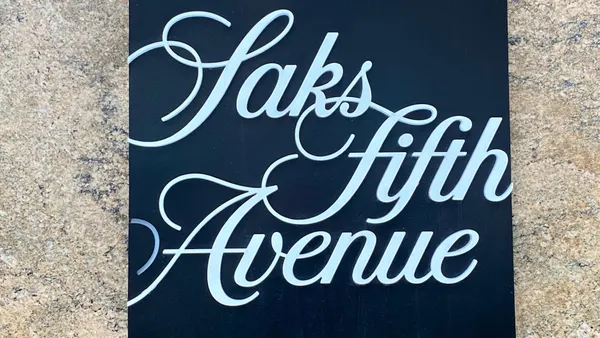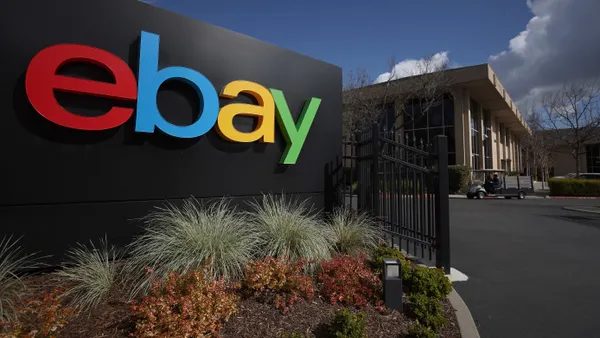Dive Brief:
- Most retail employees say training does not make them more effective at their job or any more engaged, according to a new "State of Workplace Training" survey from Axonify, a provider of training software, emailed to Retail Dive.
- Of retail employees surveyed, 35% said training is "very effective" in helping them do their job well, and only 31% said that training makes them feel "extremely engaged," the study found.
- The study also found that 32% of retail employees said they don’t receive any formal training — higher than any other industry surveyed, an Axonify spokesperson said in an email to Retail Dive. Only 22% receive online training, and a mere 11% receive only classroom training.
Dive Insight:
In-depth retail training is rare enough that it makes news when the largest companies undertake it.
Walmart was a pretty mature company — indeed, the largest in the world — when it set about developing 200 employee training centers across the U.S., as part of a nearly $3 billion investment in its workforce. By last spring, more than 50,000 store associates had completed the retail giant’s training program and nearly a quarter million more were on pace to do so in 2017. But even as employees take away new skills, some have said their personal economic prospects were not improved by Walmart’s initiatives.
For Walmart, as well as Best Buy — which has also looked to its workforce to improve performance — the strategy is simple. As Amazon and other e-tailers steal share, brick-and-mortar retailers are seeing their employees (who, unlike chatbots and algorithms, are real live humans) as a competitive advantage.
Training and pay could further improve as retailers shed stores while industry consolidates through bankruptcies and mergers. A smaller footprint means, potentially, lower costs and more focus on a retailer’s most productive stores. That, in turn, could mean equipping store associates with technology; giving them more time, power and incentive to boost store sales; or just asking them to do more with less (something many economists will tell you isn't possible).
Some, like Zeynep Ton, an associate professor of operations management at the MIT Sloan School of Management, think that for retailers to survive at all, they will have to empower their employees to be more productive. As Ton told Retail Dive last year, "I think that mediocrity was OK for a long time when people had a lot of money to spend and competition wasn’t as intense," she said. "Retailers are so focused on minimizing labor costs. They want to get more work done with fewer people. It makes for bad jobs for employees and bad service for customers."
Of course, even as store employees become more productive, their numbers will likely continue to dwindle. By July of last year — after thousands of store closures as retailers went downsized in and out of bankruptcy — retail job losses had already surpassed all other years but one since 2009.












